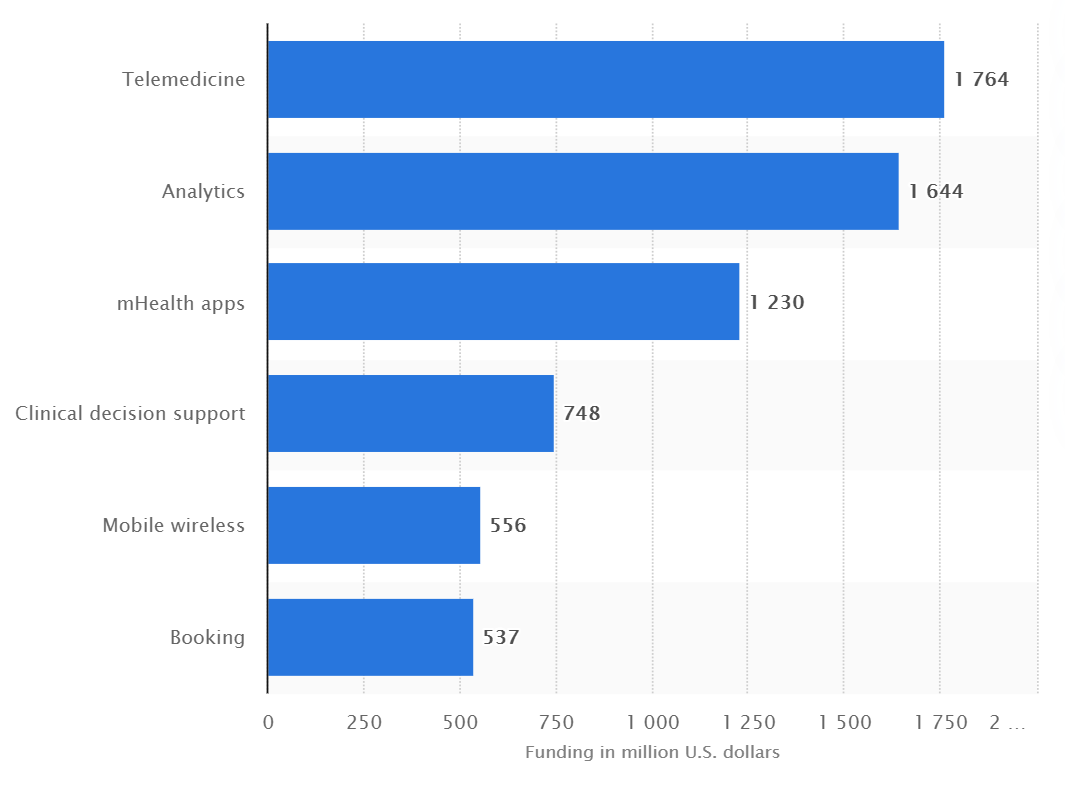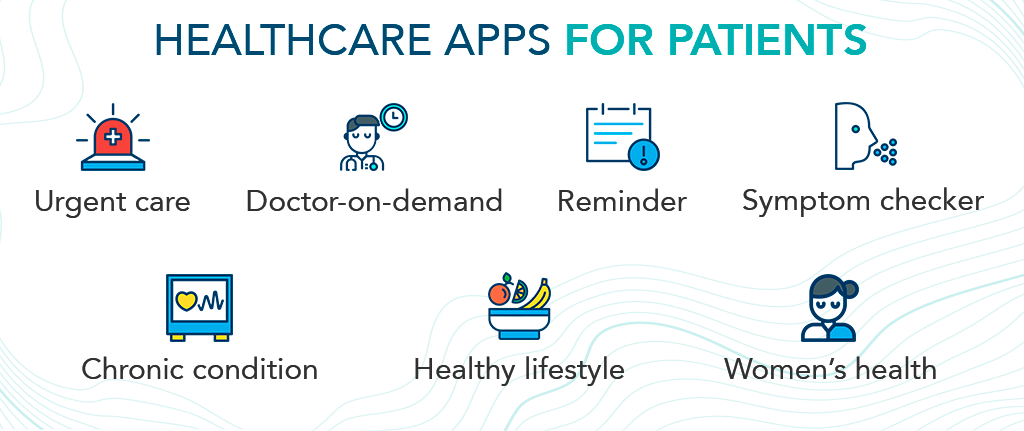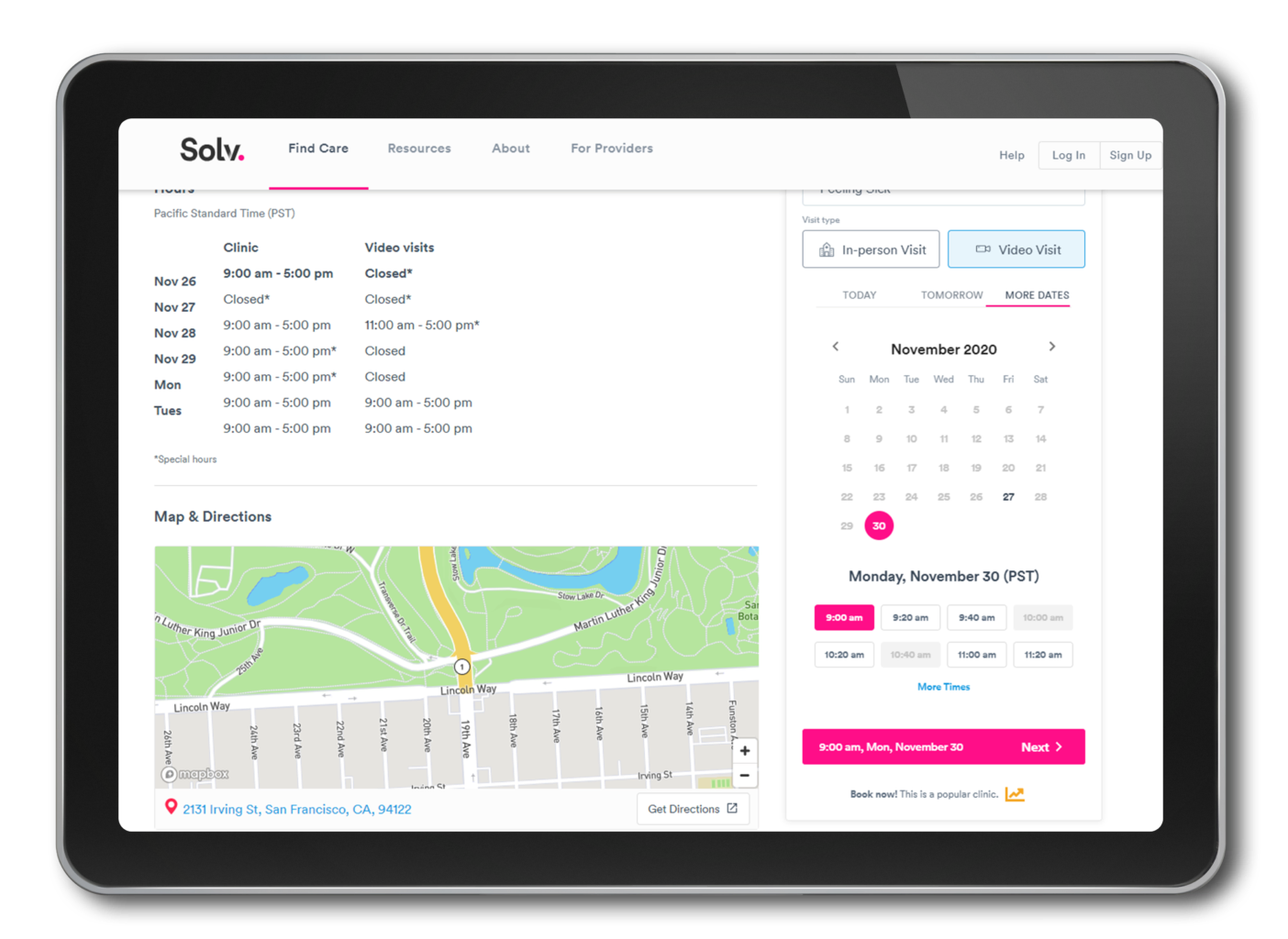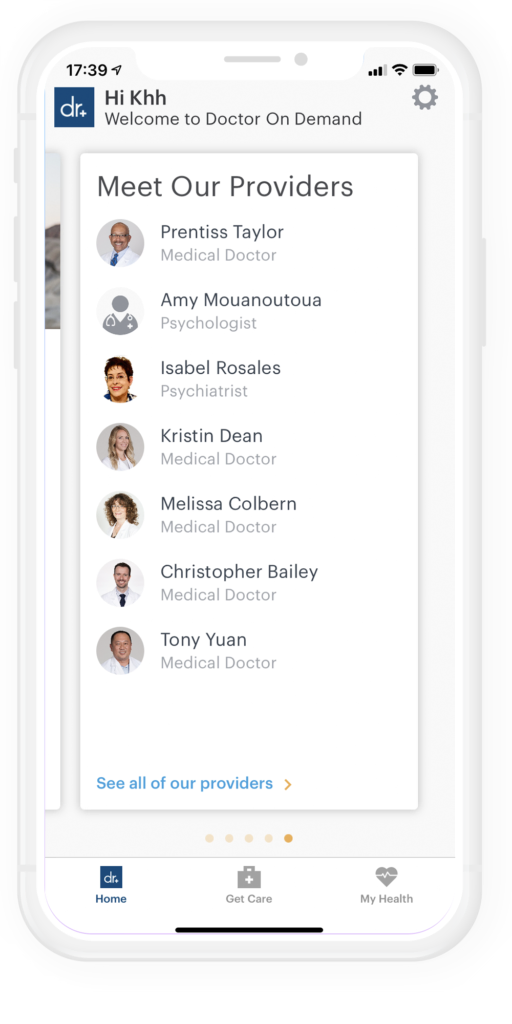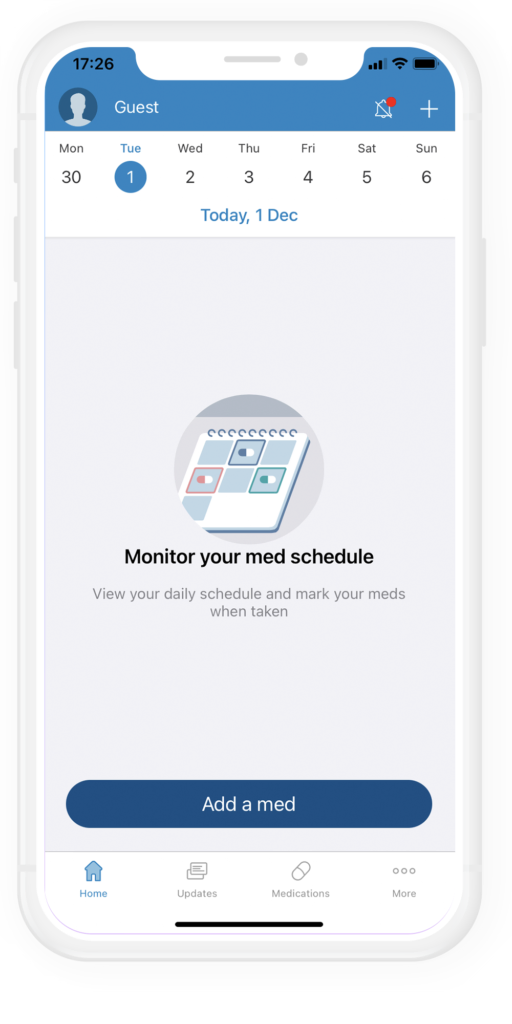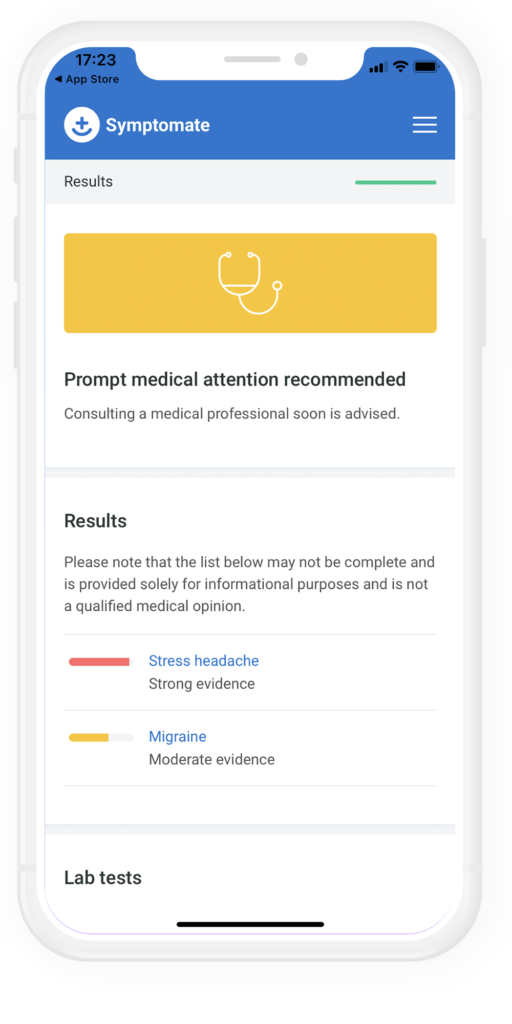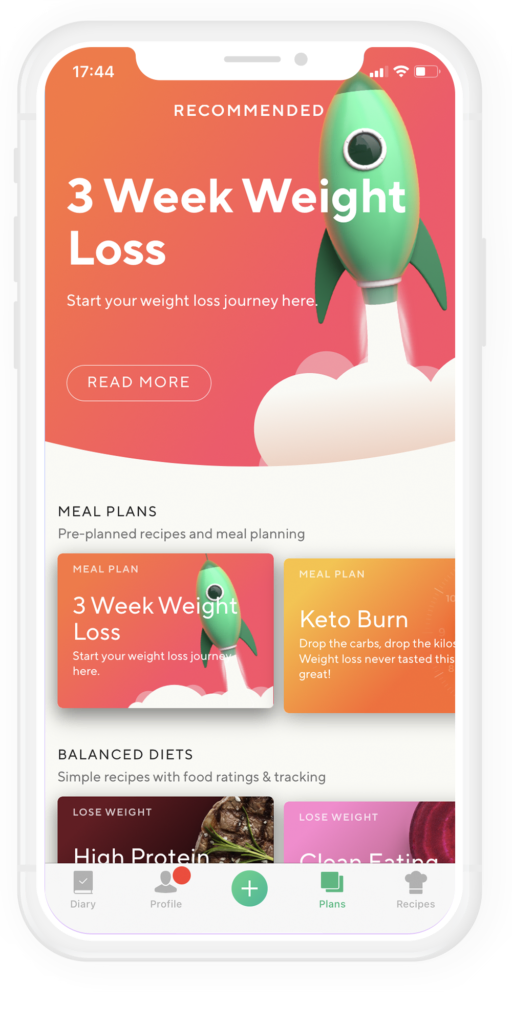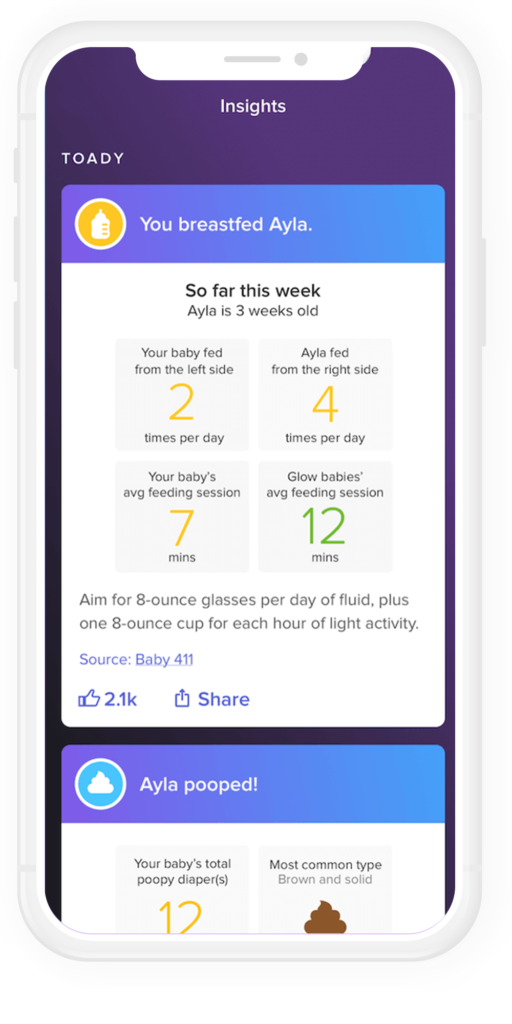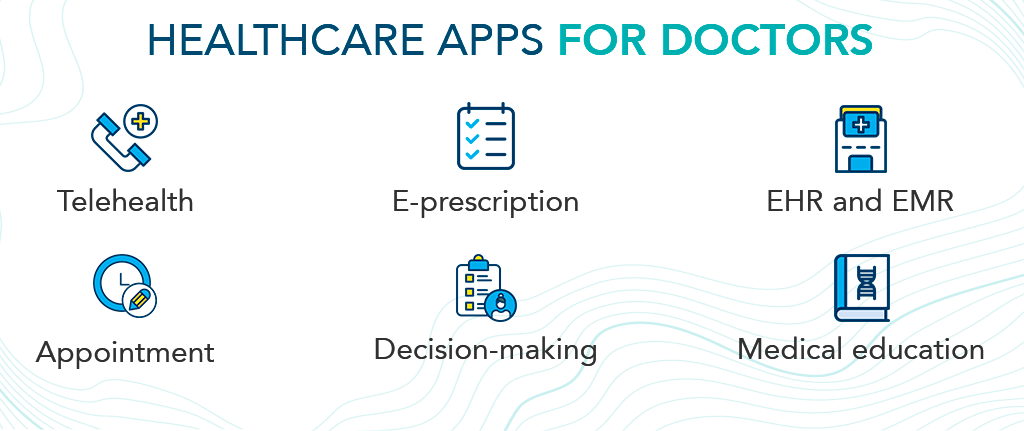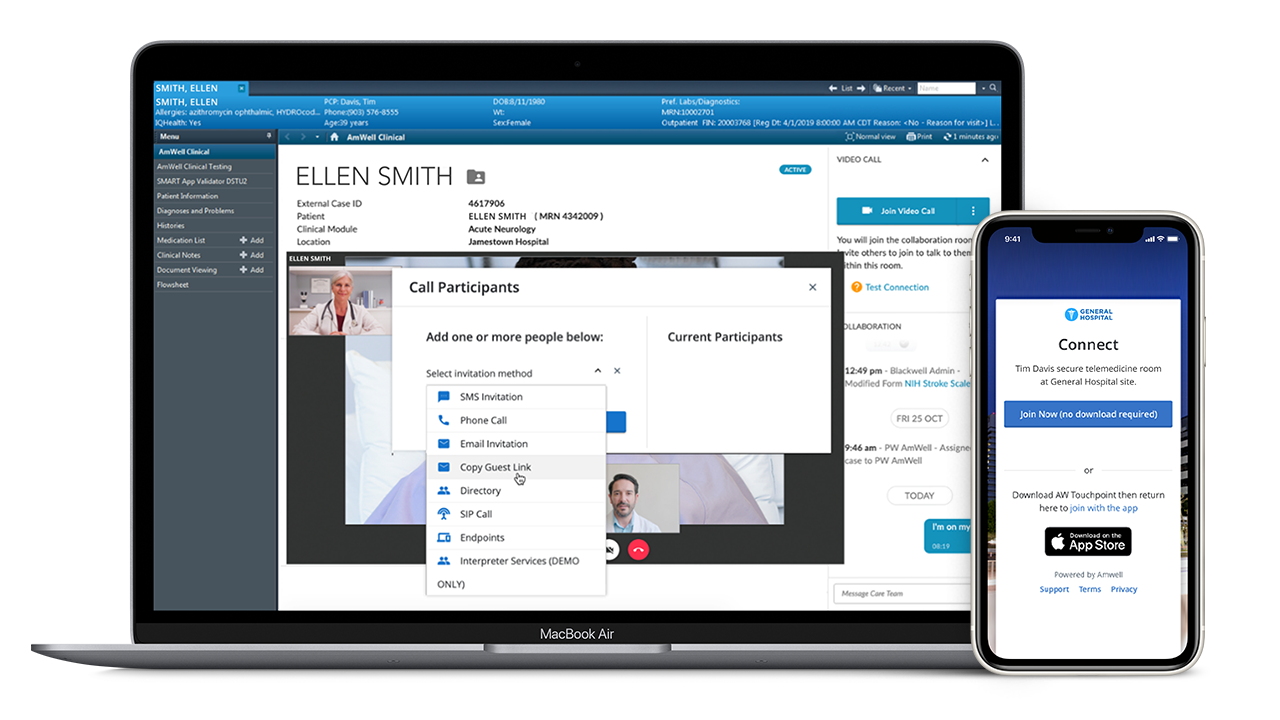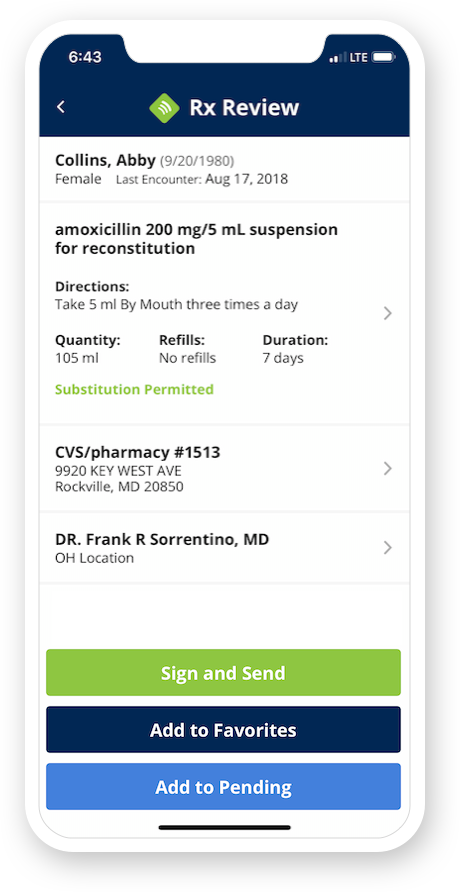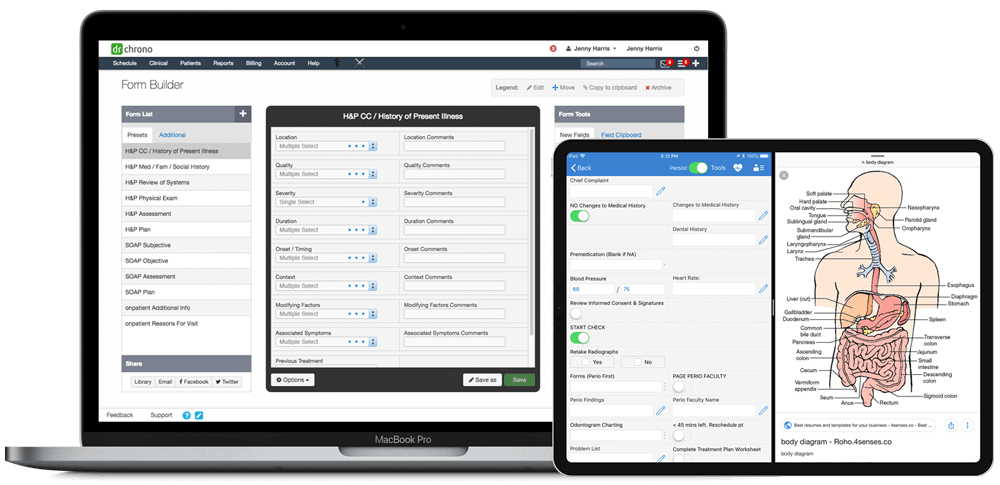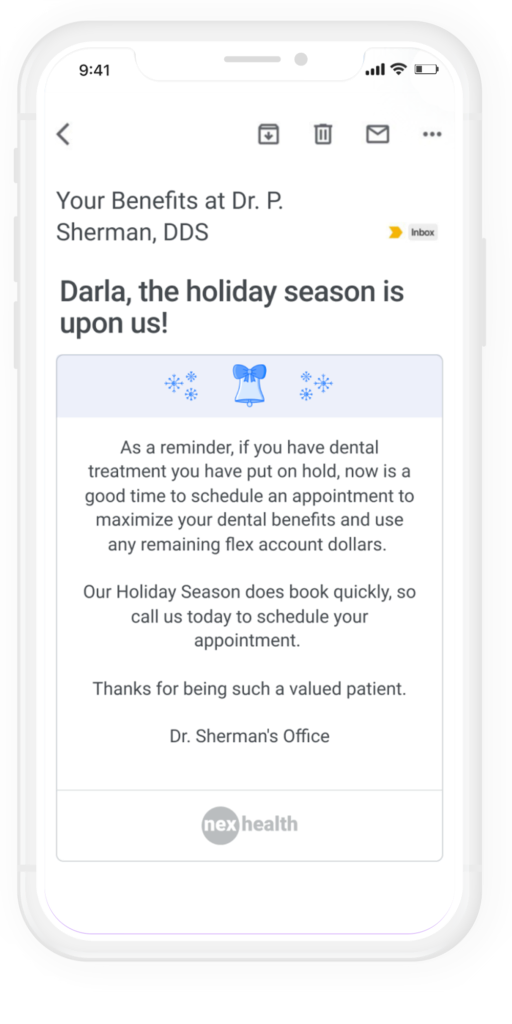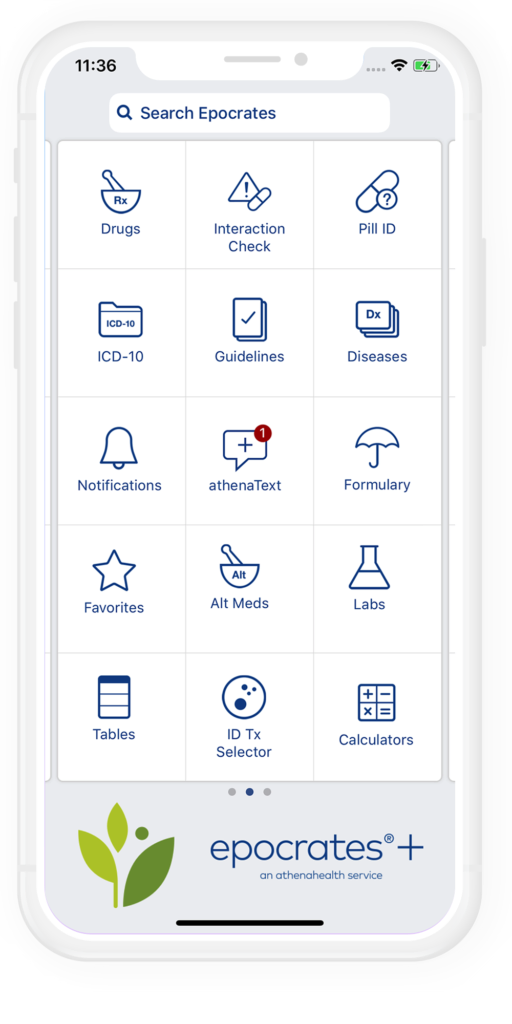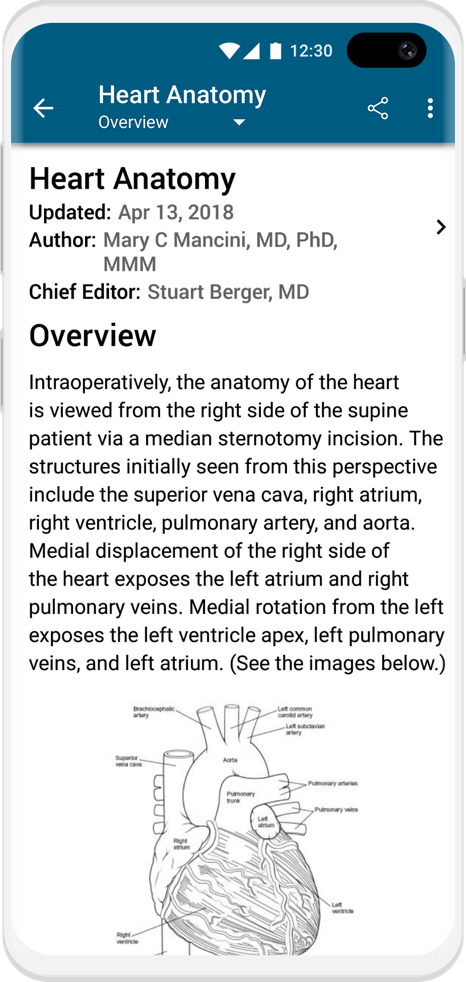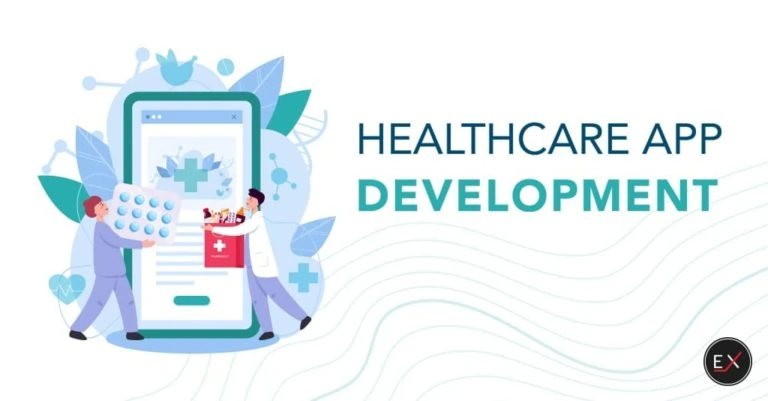
Updated: June 27, 2024
Published: January 10, 2020
How to start healthcare application development? Looking for some suggestions to implement your ideas? We’ve gathered useful information to streamline the development process of medical solutions. The article will discuss mobile health app development as an inevitable part of digitalization in the medical sphere. Find out more details on the latest market trends, technologies, and development requirements.
List of the content
- How to approach healthcare application development?
- Challenges to take with health mobile app development
- What solutions does healthcare application development bring?
- Healthcare mobile application development for patients
- Mobile health app development for medical practitioners
- Medical app development requirements
- In conclusion
HOW TO APPROACH HEALTHCARE APPLICATION DEVELOPMENT?
The healthcare industry is among the first one to adopt the latest technology trends. Mobile app development turns out to be a perfect solution. It is all about extra functionality, convenience, and mobility. The full-fledged healthcare application is a promising start to enter the medical industry. Though, how to do it right?
It isn’t so easy to withstand the intense market competition. Besides a good idea, you need to come up with a robust development strategy. You need to plan each step carefully and cover everything to the smallest details. Another thing to consider is security and privacy. It always comes first in healthcare application development. To evolve the successful strategy, you need to go through the following steps:
Challenge identification
Extensive research on market needs, user expectations, best practices take some time. Give it some thought about what value app proposition you can offer. What does the market lack in 2020? It is essential to define the initial goals, so it will be easier to move towards them. For instance, seniors are at greater risk of contracting severe illnesses like Covid-19. How can you reduce their chances of getting sick? Even pharmacy visits can be dangerous for them. Most seniors have certain medical conditions and get treatment regularly. So how can they continue their treatment and stay healthy?
Solution
The initial app’s purpose is a solution to the outlined challenge. Its definition is the necessary step to choose the healthcare app category you’re going to work on. Proceeding with the sample, the development of an e-prescribing mobile app is a viable solution. However, we’d like to extend typical app functionality and offer advanced features. Door-to-door delivery is an excellent addition to the specific needs of older adults. As a result, medication will be delivered contactless and taken under the control of the care providers.
Requirements analysis
The requirements analysis covers all the aspects of health mobile app development. The team analyzes, documents, validates, and manages the general software requirements. With e-prescribing, they need to arrange efficient and secure interactions between stakeholders.
- Easily handled request with quick door-to-door delivery for patients
- Simple and complaint prescribing flow for doctors
- Integration with the national pharmacy network
- Delivery services verification
Compliance
Healthcare application development is handled within strict security and privacy regulations. Any application developed for care services has to meet HIPAA compliance. As for e-prescriptions, they have to be also controlled by the Drug Enforcement Administration. Doctors can prescribe controlled medicines only within the DEA-level secured apps.
SDK/APIs
APIs have an important role in healthcare data exchange. It encourages new ways of unifying the healthcare environment. With ready-to-use solutions, you should integrate your app into the general care system. Preceding with our sample, the team can integrate the e-prescribing app with the pharmacy network like the Surescript. It is a major US health information network for safer and affordable prescribing.
UI/UX design
It is worth noting that the app design acts as a navigation for the provided services. Depending on its accessibility and responsiveness, you build connections with your users. Taking the sampled e-prescribing app, designers have to focus on the specific needs of the targeted audience. Remember about material design patterns, menus to single functions, and bigger visual elements. The primary users are patients with common conditions in older age. You need to ensure accessibility for seniors who can use the app without any assistance.
System architecture
When you consider healthcare mobile app development, it isn’t just creating iOS and Android apps. It is typically completed within the fully-functional system. The software architecture connects system components like the user’s interface and the structure. Healthcare app developers deal with the database, backend, mobile apps, web interfaces, microservices. It is great to integrate e-prescribing apps with insurance and senior care provider solutions.
Development
The process goes with following the outlined architecture requirements and functionality specifications. Back-end developers start working on secure and robust backend delivery. The responsibility is to establish the logical structure of the healthcare mobile application. In their turn, front-end developers create the app interface meeting outlined user expectations.
Testing
It is evident that QAs carry out testing in parallel with the development process. It allows the team to spot the important details that might not have been considered before. At the same time, you can arrange to gather users’ feedback for further improvements. Careful observations help to maintain better performance and come up with new updates.
Launch of MVP/POC
MVP (minimum viable product) development strategy is a perfect option to consider. The breakdown of the features enables their delivery in order of priority. Thus, it opens better opportunities for resource-saving, feedback, marketing, and safe investments. In the case of an e-prescription app for seniors, the team can implement family service functionality later. However, the delivery service option has to be launched within the first app version to prove the concept.
Requirements analysis
Healthcare app development is a continuous process. The product owners and health app developers need to come with new functionality and constant updates. Advanced app functionality can also be integrated with marketing strategies. For example, updates for e-prescribing apps can include creating a coupon system for regular users or family members.
That is a short description of the healthcare application development guide. Let’s proceed with more healthcare challenges and how to come up with your solution for care services.
CHALLENGES TO TAKE WITH HEALTHCARE APPLICATION DEVELOPMENT
The healthcare industry keeps on consistent improvement and achieves significant progress. Improved management and delivery of medical services are essential here. Innovative technologies open different opportunities to perform standard processes. With technological advancements, the necessity of mHealth is only going to increase. Mobile healthcare apps feature essential tasks and cover many health-related areas. Developing mobile apps has become a common practice among medical institutions and third-party providers.
Despite the variety of medical applications, the market requires alternatives and innovative decisions. Healthcare mobile application development has enabled distinctive functionality. That makes care delivery more accessible and efficient. It happens within customized, accessible, and productive approaches. Mobile health app development enhances stakeholders’ interactions at the highest level.
What is Healthcare Application Development?
It is a complex process to define, design, build, and launch a successful mobile app for care delivery and health improvements.
There is always an opportunity to enter this industry with fresh ideas. New functionality for telemedicine, remote monitoring, or maintaining lifestyle is a promising start in healthcare application development. Users are still in need of efficient solutions that can target different aspects of healthcare. It might be complicated to differentiate mobile healthcare apps. According to users’ needs, we could outline two main categories of medical applications – patient and doctor apps. Besides the typical division between user needs, companies have to further their specifications. It is excellent to oversee new opportunities and deliver some unique features. Something that can distinguish your product at the market.
User expectations are growing higher, and so is the market competition. Starting healthcare application development, you need to accept major care challenges. You can either focus on one or try to combine a few of them. Speaking about the main objectives in medical mobile app development, it is worth emphasizing the next things.
Patient Experience
Any interactions in the healthcare system are an inevitable part of quality services. Patient experience encompasses care from health plans, interactions with medical personnel, clinics, physician practices, or other health care providers. Understanding patient experience allows companies to move toward patient-centered care. Healthcare mobile app development is a new channel to support such interactions. With game-changing new technologies, it becomes possible to transform the practice of medicine. Patients can have access to quality and affordable care via mobile devices anywhere and anytime.
Healthcare Professionals’ Interests
It is essential to ensure the well-being of the healthcare workforce. Companies can’t underestimate such aspects as burnout, stress, job dissatisfaction. Resilience promoted within the medical community can make a big difference. You should consider the care team interests at the same level as patients’ ones. By improving the staff experience, you can enhance patient satisfaction and safety. Healthcare application development has opened new opportunities for system-wide approaches. It brought new purposes for care teams. They include streamlining daily processes, setting efficient interactions, and delivering new care models.
Population Health
From the population health perspective, healthcare app development is the golden opportunity. At its core, population health concentrates on unifying care systems, institutions, and providers. The healthcare industry learns to think globally while operating regionally. Quality care has to be accessible and affordable. It shouldn’t depend on the socioeconomic status or geographical area. Healthcare mobile app development enables new models for preventative, diagnostic, and therapeutic services.
WHAT SOLUTIONS DOES HEALTHCARE APPLICATION DEVELOPMENT BRING?
Modern technologies aim to simplify and advance medical services. It can cover typical processes and create new ways to support quality care. The healthcare system focuses on effective collaboration between hospitals, patients, and third-party providers. Both governments and private institutions invest in innovative approaches, including healthcare application development. They need to analyze the actual market situation and concentrate on population health. As a result, it presents and supports unique care models. Moreover, it is important to increase patients’ awareness and responsiveness. There are so many options to be on track and improve health with digital solutions.
Healthcare mobile app development is among the top-funded digital categories in 2019. Its budget reached 1230 million U.S. dollars. Source: Statista
The medical application has become one of the most efficient tools. It provides health-related services to anyone via gadgets with an internet connection. Quick and easy access to the necessary service has made a difference in daily care processes. It transformed the relations between patients and healthcare professionals. Also, many healthcare apps focus on better support to maintain a healthy lifestyle. Fitness, dieting, and health reminder apps are rather popular among users.
The ever-growing healthcare application development has outlined new market trends. Before we proceed there, let’s consider the distinct solutions of medical app development.
Convenience
Portability and instant access are something that drives today’s market. Mobile medical app development is a perfect solution to reach the majority of users. The patients can immediately access quality care via online consultation. The doctors manage patient histories, send e-prescriptions to both patients and pharmacies. Any data gathered via patients’ wearables can be instantly shared with chosen practitioners. It is easier to track patients’ conditions, especially chronic diseases. These are a few examples of the available functionality. As for the actual amount of healthcare applications, there are 48,608 in the Apple Store and 47,140 at Google Play.
Affordability
Medical care is quite expensive. People are looking for alternatives to reduce healthcare expenses. Health-related mobile applications offer many necessary services along with affordable bills. As an example, we can take telemedicine, which is the future of medicine. Patients have online appointments with the doctors instead of visiting a clinic. Actual visits usually cost higher. You need to add costs of getting to and from the hospital, especially for someone living in rural areas. Whenever expenses on mobile apps are about 4 U.S. dollars per average user in the preceding quarter. Moreover, it reduces the clinic’s unused capacity, including available hours.
Accuracy
Digital technologies enable secure records storage, efficient data analysis, and streamlining of processes. The doctor apps won’t be that efficient without processed data. It includes patient history, medication lists, clinical documents, care guidelines, and protocols. Various technologies process tons of data to show correct results. It helps to reduce medical errors and make a diagnosis more precise. Artificial intelligence is a powerful tool. Its revenue only for healthcare mobile app development is going to reach 6.16 billion U.S. dollars in 2022.
Continuity
The quality of healthcare depends on strong connections between involved parties. Healthcare application development is a perfect solution for preventative measures. Remote monitoring and regular checkups can identify potentially preventable conditions. In its turn, doctors have access to records of previous admissions, lab test results, or the disease history. Data-driven approaches enable doctors to receive processed data for making further decisions. Telemedicine provides all the necessary functionality to deliver outpatient care. For example, Cleveland Clinic numbered 60 000 telemedicine visits in March 2020. It is times more compared with the average 3 400 visits before the lockdown. Thus, integrated strategies can ensure continuity of care under different circumstances.
These benefits bring good changes and advance the medical industry in general. Medical researchers and health app developers are exploring the latest technological possibilities. The main aim is to provide the best quality health-related services.
HEALTHCARE APPLICATION DEVELOPMENT FOR PATIENTS
Patient-centered care is one of the goals of efficient medical services. Healthcare app developers support new models to deliver valuable patient experience. Moreover, it provides accessibility and makes services affordable for everyone. Unique functionality and user personalization help to build useful products. Care is coordinated across different channels that later unify into a comprehensive system. The patient app is only one version of the healthcare application. IIf we talk about a telemedicine app, the patients’ app has to be fully integrated. It includes the admin panel, doctors’ app, EHR, and hospital management system modules. Let’s review a few examples and why users choose them.
Urgent care apps
They are useful in different emergencies. It offers such vital information as the nearest hospital, available doctors pharmacy locations. It is good to add directions, estimated time to get there, and even how long it might take to wait in line.
Solv is a popular healthcare application to book appointments, including the same-day ones. Based on the location, patients get a list of clinics with available visit times. Moreover, most clinics offer both in-person or video visit options. They have a detailed description of offered services and accepted insurance plans. Patients can check the clinic’s ratings and reviews.
Doctor-on-demand apps
The patients often need to receive treatment for non-emergency conditions. It is quite convenient to have an appointment online via audio and text messages or video calls. Licensed physicians offer a number of services. They make the diagnosis, provide advice, prescribe the treatment, write the sick note. The doctors usually charge per visit, but many apps accept insurance.
Doctor On Demand is a well-known telehealth platform. Consultations with licensed physicians are available 24/7. Besides urgent and chronic care, they assist in preventive and behavioral health. Finding a required specialist is that easy. It takes only a few steps:
- Take a quick assessment
- Choose the doctor based on their background
- Book the video visit
Besides regular payment options, they also have virtual care plans. Many employers partner directly with Doctor on Demand to offer it as a benefit for employees.
Reminder apps
Patients often use some regular reminders to take medication. Though medical reminder applications with advanced functionality are more convenient. Automatic integration with the patient’s e-prescriptions is rather beneficial. They can receive push notifications on call in refills or receive instant consultation. Many patients have difficulty reading instructions or losing them. Some apps can recognize pills by scanning or uploading images.
Medisafe is an easy-to-use medication reminder app that has some distinctive features. For example, it can give warnings on drug interaction so the patient won’t take certain medications together. They’ve also delivered a great functionality to interact with caregivers and family members. The dependent feature enables notifications and constant monitoring for the assigned users.
Symptom checker apps
That has become a great addition to digital health. Entering symptoms, users can get a list of possible conditions and treatment suggestions. It cannot be considered an entirely accurate diagnosis. Actual medical specialists’ consultation is still required. Health app developers and medical specialists focus on the constant advancing of algorithms. It enables better solutions for making diagnoses.
That is quite a complex application to implement. It requires the usage of AI technologies. Everything is based on scientific literature, medical protocols, and doctors’ experience and knowledge. Symptomate is a good example to use here. It is a clearly-designed solution, though powerful under the hood. Users favor such advanced features as detailed results, voice assistants, suggested lab tests. Moreover, the app supports 17 different languages and spreads services worldwide. As for the business prospects, they offer the Symptom Checker as the embedded services for medical organizations.
Chronic condition apps
Chronic diseases like diabetes, cancer, heart diseases need regular management of health conditions. These apps allow us to gather data of a long medical history and store it in one place. They help patients and doctors track health changes and monitor treatment. Often it provides round-the-clock medical support.
PainScale is a personalized relief solution for patients with chronic pains. Besides tracking the pain levels, it suggests treatment options, recommended activities, physical exercises. Certified practitioners prescribe all the medications. They encourage communication within the app community, provide educational courses, and offer therapy.
Healthy lifestyle apps
This category presents helpful tools to maintain a healthy lifestyle that is among the top concerns of today’s society. It includes dieting, healthy nutrition, fitness, and other apps. Along with tracking and monitoring progress, they provide guidance and give necessary instructions. Healthy lifestyle apps are usually integrated with different wearables.
Lifesum promotes personalized approaches for better nutrition and food tracking. They’ve come up with a variety of features for their healthcare application development. They include the huge products database, the barcode scanner, habit trackers, shopping lists. Also, the application has different meal plans, recipes, losing/ gaining weight diets.
Women’s health apps
Meeting the women’s needs, healthcare application development deals with one more specific category. It covers different functionality like monitoring pregnancy, child care, breastfeeding. It also includes period, mood, weight trackers, doctor appointments, online сonsultations.
Glow Inc. specializes in developing a health app for women. Each mobile application focuses on a specific aspect. For example, Glow Nurture is built to follow prenatal health. Later, women can switch to Glow Baby to support the child’s health, feeds, diaper tracking. Moreover, they’ve built one of the largest mobile communities for women’s health.
HEALTHCARE APPLICATION DEVELOPMENT FOR MEDICAL PERSONNEL
Remaining patient-centered is easier while considering other stakeholders’ expectations. The healthcare mobile app development company focuses on medical personnel needs. Digital transformation doesn’t aim to replace doctors. Instead, it supports and focuses on patient-oriented and valuable activities. Another thing is that healthcare application development has to improve medical personnel wellbeing. They take primary responsibility for care services and need some helpful tools here. Thus, doctor apps simplify daily routines and present new health care models. It concentrates on the accuracy, speed, and quality of delivered services. Medical applications for doctors can be divided into the following categories.
Telehealth apps
Today’s technologies enable receiving efficient remote services from doctors. Healthcare application development focuses on communication capabilities to consult patients. It covers video calls, text and voice messages, emails, video conferencing, sharing files, or pictures. That’s a professional medical tool integrated with other EHR and EMR systems. It provides medical protocols and guidance, organizes and analyzes data for accurate diagnoses.
As for the business aspects, user engagement models can be arranged in a different way. The first option is to build a customized solution for the staff of one medical institution. As a result, the doctor app version will be accessible only for clinic employees. The other way to enter the telemedicine market is to make open-source platforms. The user base is quite different here. It can be private practitioners, hospitals, or any other healthcare provider.
Amwell specializes in providing full-spectrum telemedicine solutions. They’ve partnered with more than 2000 hospitals and health system providers. Besides standard solutions, they’ve presented programs and modules for specific use cases. It involves urgent care, behavioral health, nutrition, pediatrics, etc.
How much does it cost to develop a telehealth app?
We recommend reading the following article on telehealth development cost. You’ll find cost and timeline estimation based on the common features of the telehealth app.
E-prescription apps
Innovative healthcare mobile application development enables the possibility to provide an electronic prescription. This app category has become a reasonable solution for all the parties involved. These are doctors, patients, pharmacies, and insurance. It makes sending prescriptions safer for practitioners and faster for patients. As the software automatically sends prescriptions to the pharmacy chosen by patients in advance. They are quicker to process an order and insurances – to reimburse it.
Data security compliance is among the main concerns of this healthcare application development. The software deals with tons of vulnerable data. Starting from practitioners’ authorization to electronic prescribing of controlled substances.
MDToolbox is an advanced e-prescribing software. It is secured at the highest levels of encryption. This software is authorized to send e-prescriptions to pharmacies nationwide. They have partnered with the Surescripts Network for increasing safety. Moreover, they’ve become the 4th EPCS certified system. As for other distinctive features, practitioners mention the Rx pricing module. It is a real-time benefit for both patients and doctors as they check the medication prices based on patients’ insurance plans.
EHR and EMR apps
Doctors deal with tons of electronic health records (EHR) and electronic medical records (EMR). As they can make the right diagnosis, define treatment, and prescribe medicine. Permitting secure access to patient information enables efficient and structured support. It allows medical staff to share lab results, medical images, and scans.
Medical institutions can choose between a vast variety of ready-to-use solutions. DrChrono is a known EHR platform for its advanced functionality. It includes practice management, telemedicine options, revenue cycle management, and mobile EHR. They were among the first to present full-fledged EHR apps for iPad, iPhone, and Apple Watch for medical practitioners.
Appointment apps
It is a vital time management tool for hospital personnel. They can design schedules, plan appointments and meetings, manage open hours. It covers automated reminders and eliminates scheduling conflicts. As it always synchronizes external calendars and doctors’ availability.
Moreover, medical appointment apps deliver way more functionality than only scheduling. For instance, the NexHealth app includes extra features. These are patient messaging, recall, online payments, text, and email marketing. Recently, they’ve introduced a marketing strategy specially developed for dental care providers.
Decision-making apps
Quick data access and accurate analysis will provide specialists with advanced solutions. It helps to make crucial decisions based on the gathered information. Medical calculators, treatment guidelines, diagnosis aids, lab tests are the main sources. It decreases medical errors and strengthens the healthcare ecosystem.
Epocrates is a great medical reference application. It contains required data for diseases, diagnostics, treatment plans, and alternative medicines. The medication interaction check is a great functionality. As medical practitioners can adjust, monitor, and substitute drug components.
Medical education and training apps
Continuing medical education is a must-have for every specialist. They need to maintain competence, stay aware of new findings, and area developments. Healthcare app development services offer e-learning, online training, case studies, skill assessment tests. Many applications feature social communication to build a cohesive community within their software.
One of the popular representatives is Medscape. It is a global resource for healthcare practitioners. It covers everything: treatment guides, latest medical news, education tools. Doctors can easily stay informed about late-breaking clinical data, FDA drug approvals. Moreover, they can earn Continuing Medical Education credits within the personalized CME tools.
HEALTHCARE MOBILE APP DEVELOPMENT REQUIREMENTS
Healthcare app development embraces so many areas and provides different functionality. However, several things would be typical for any medical mobile app development. Every healthcare mobile app development company has to meet the already set requirements. Exceptional functionality, advanced technological approaches, and design trends are things to consider here. As well as they have to follow different compliance regulations. We’ll discuss each of these aspects and outline some necessary details.
Data security and privacy standards
Healthcare application development includes storage, exchange, and processing a lot of data. It deals with sensitive personal information. To ensure functionality, it’s essential to consider data security and privacy standards. Regulations and policies could differ from country to country. Thus health app developers have to follow them rigidly. Every healthcare application development starts with learning required regulations. The team follows them during the medical app development process, maintenance, and updates.
- HIPAA – If the company wants to develop a healthcare app for the U.S. market, it has to be HIPPA compliant. The Health Insurance Portability and Accountability Act protects patient health data. It regulates its transmissions and limits unauthorized entities’ access. Also, it manages better enforcement and includes a tiered structure of violations.
- GDPR – As for European Union countries, medical app development has to comply with the General Data Protection Regulation. GDPR governs any data activities and directs privacy laws across the EU. It introduces strict privacy requirements and hefty fines for noncompliance.
- PIPEDA – The Personal Information Protection and Electronic Documents Act is based on the individual right to privacy. It regulates the collection, circulation, and exchange of data in Canada. It applies to both private and federally regulated organizations operating in this country.
The regulations have slight differences. But they aim to protect data and establish legal and secure transactions. Regardless of location, safety regulations apply to every organization. So they can process the personal data within the chosen country. Moreover, if you want to operate globally, ensure compliance with every applicable regulation.
Healthcare mobile app design
Want to make a healthcare app popular among users and withstand the market competition? Then you need to provide an exceptional experience for the users. UI/UX designers need to concentrate on accessibility and consistency. It is always great to predict the user pathway and present a seamless experience. The great application would guide the users and deliver the needed solutions right away. Moreover, take users’ feedback as one of the main points for improvements and updates.
All the users will favor clear and simple healthcare mobile app design. As long as the company makes the medical application, it is crucial to consider users’ needs with disabilities. It includes low vision, dyslexia, physical disability. Right color tones, adjusted contrast, clear graphics are among small things. Though they deliver expected results.
These requirements are achievable if implemented from the first healthcare mobile application development stages. Suitable page layout and proper color scheme are among reasonable solutions to integrate assistive functionality. Most operating systems have efficient accessibility modules that could also be built into the application.
Up-to-date technology to deliver valuable functionality
Successful healthcare application development relies on the capability to adopt the latest technology. At the same time, it should present sufficient functionality. It will always balance between these two aspects. Leveraging advanced technologies remains an essential step in the business strategy. Thus meeting user expectations depends on how well you outline app functionality. Then it helps to select the required technology stack. Let’s consider some of the current trends in healthcare application development.
- The wide adoption of telemedicine has drastically changed the care delivery models. It establishes real-time access for patients and medical practitioners. Online appointments, doctor-on-demand features, e-prescriptions are integral functionality to implement within telemedicine.
- Along with storage opportunities, cloud solutions have made data accessible and shared. Healthcare application development depends on efficient data exchange within compliance regulations. It deals with such sensitive data as health and medical records, medical images, lab results. If you store data and compute power in the cloud, you enable its faster and secure access anytime, anywhere.
- The Internet of Things has become a perfect extension to healthcare application development. For instance, it is easier to collect and track health-related data via wearables. Transmitted to the mobile health app, data is well organized for sharing with the authorized parties.
- Artificial Intelligence alters the perception of innovative healthcare app development services. For example, it is often applied to simplify doctors’ diagnosis process. Also, it allows patients to get efficient treatment advice via the symptom checker software. It has enabled efficient solutions for self-examination and remote procedures.
- AR and VR technologies are significant for healthcare experts. It is often used for virtual training of medical personnel, especially surgeons. As for patients, it helps to manage chronic pain, resolve trauma, and treat mental health.
- Voice communication and recognition are the must-have for mobile medical app development. It speeds up the medical assistance and minimizes disruptions. For example, it is convenient to make notes for doctors by dictation, as all data is transcribed in seconds.
- Health mobile app development has to oversee payment options. It is great to offer some choice when, for example, the patients need to pay for video visits. Even though telehealth software accepts insurance, it also needs to include self-pay. Moreover, telemedicine apps often have their own health plans. As for mobile app development, payment gateway integration has become a great solution. It helps to receive, make, and process payments within the compliance regulations.
- Healthcare app developers are responsible for keeping all the data secure. Thus blockchain and encryption are commonly used here. It is a great option to keep a transparent and secure log of medical data.
Therefore, every healthcare app development process has to start with the medical app business plan. It defines the required features and used technology. Companies get documentation with clear guidance for the mobile medical app development process.
Have more questions on how to define the tech stack for healthcare app development?
Feel free to contact EXISTEK for professional consultation.
APIs in medical app development
If the company develops a new healthcare app, it is vital to integrate it into the existing healthcare environment. Ready-to-use solutions enrich your product with the necessary functionality and security features.
APIs provide health app developers with pre-designed integration tools to build apps easier and faster. It facilitates the development process in general. In simple terms, they apply the ready-made code to create a mobile app. It helps to save time and resources as API tools simplify code debugging, error fixing, app support. Moreover, the team can customize available APIs according to their specifications.
At the same time, APIs provide excellent security solutions. It ensures the improved data exchange within the compliance regulations. Good APIs support reliable storage, authorized access, and secure exchange of health data. The chosen solutions need to have all the security certifications, including ISO 27001. Any API is also subject to HIPAA requirements. Thus, the development team can maintain compliance with regulations across all the channels.
Let’s consider some of the known APIs for health mobile app development.
- Human API – This health data platform takes care of secure and transparent integrations. It allows users to connect and share their data securely with other health applications, platforms, and care providers. They partner with numerous hospitals, pharmacies, labs to build the unified system. It enables the transparent exchange between reliable data sources.
- Cloud Healthcare API – That is an intelligent healthcare solution for developing a health app on Google Cloud. It supports the standardized and easy data exchange between involved solutions. Companies choose it for excellent scalability, large-scale analytics, and multilayered security approaches.
- HealthKit API – Apple also offers its SDK for health app solutions. HealthKit applies collaborative approaches as it allows users to share health and fitness data with other authorized users. Following all the privacy and data control regulations, they are responsible for collecting, storing, and analyzing such data. At the same time, it enables the necessary social interactions.
IN CONCLUSION
The adoption of technologies has increased in healthcare. It advanced services and revolutionized the industry. Thus it resulted in many innovative solutions, including digital health app development. That manages to change the standard service delivery processes. Today’s market offers an impressive variety of medical apps for both patients and medical personnel. Furthermore, healthcare is a quickly developing industry and requires constant improvements. Many healthcare mobile app development companies regularly come up with new successful ideas.
Interested in Healthcare Application Development?
Contact our team of professionals that has extensive experience in healthcare app development. EXISTEK’s team knows how to turn your ideas into successful products.
Frequently asked questions
What are mobile health applications?
The mobile health application is an efficient tool to provide health-related services via gadgets. It has opened new opportunities for daily care processes and successfully transformed the relations between patients and healthcare providers. It enables quality and accessible care for anyone.
What are the benefits of mHealth?
mHealth has offered some distinct benefits for both patients and medical providers.
Quick and easy access to healthcare services
Great choice of available functionality
Improved care quality
Decreased costs of healthcare services
Secure medical records storage and exchange
How do you make a healthcare app?
In order to make a healthcare app, you need to go through the following steps.
Define your user needs
Choose the development strategy
Come up with exceptional functionality
Select the technology stack
Follow safety regulations
Set up the team to develop the app
What are the best practices to be followed while developing a medical mobile app?
Even though medical mobile apps vary depending on functionality, they need to cover the following aspects:
Data security and privacy standards - All the medical apps have to be HIPPA compliant
Clear and simple design - User experience should be supported by accessibility and consistency
Up-to-date technologies - In order to meet user expectations, implement the outlined functionality with the latest innovations


